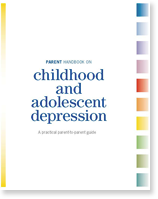The National Child Trauma and Stress Network – A Resource for Learning
Childhood trauma and traumatic stress are the result of a child’s exposure to events that occur suddenly and call forth overwhelming feelings of terror, horror, or helplessness. They can also arise due to repeated exposure to events (complex trauma) that call forth a range of responses, including intense feelings of fear, loss of trust in others, decreased sense of personal safety, guilt, and shame. As adults, people can develop a range of mental health issues including anxiety and depression, as well as physical health challenges including diabetes and heart disease.
The National Child Trauma and Stress Network provides a extensive information and resources that can help you if you suffered childhood trauma or want to learn more about its causes and effects. It also has education for parents and others who can help children facing traumatic events.

